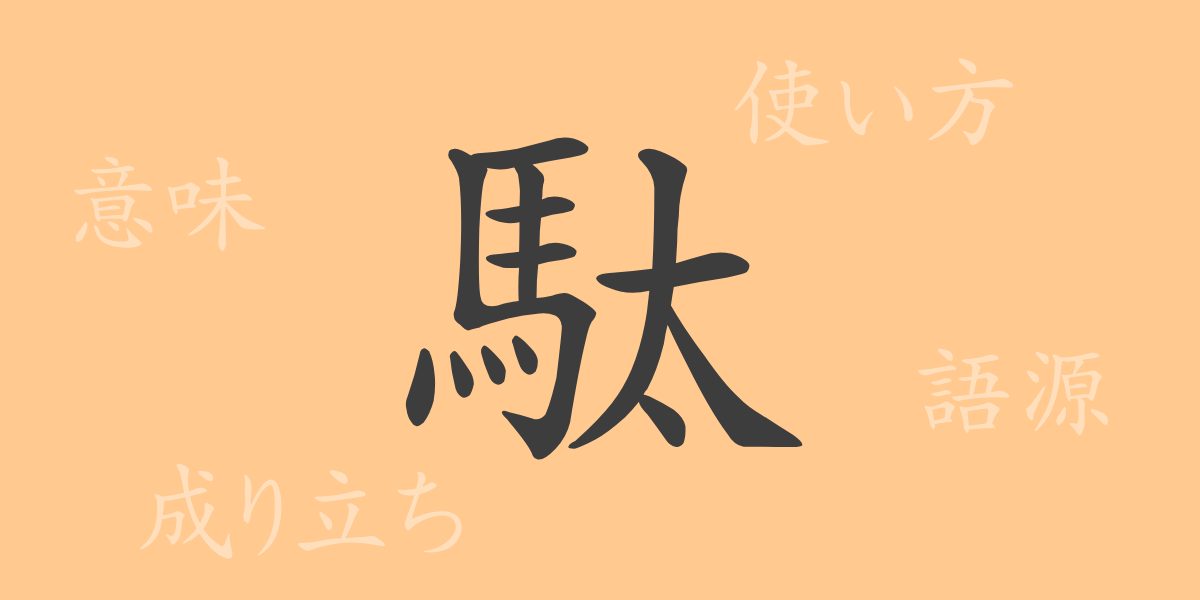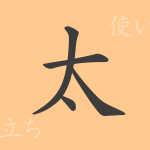Japan’s culture of writing has long evolved with its unique development of Kanji characters. Each Kanji carries profound historical significance and meaning, closely intertwined with the daily lives of Japanese people. In this article, we shine a spotlight on “駄” (da), exploring its origin, meaning, usage, and even related idioms and expressions. Let’s delve deep into the fascinating world of “駄” to enhance our understanding of the Japanese language.
Origin of “駄” (da)
The Kanji “駄” originates from ancient Chinese pictograms, originally depicting the act of loading baggage onto a horse, symbolizing transportation. In Japan, this Kanji has been used since ancient times, particularly during the Edo period, where it became established as a term referring to transporters. Over time, however, “駄” expanded beyond its original meaning to be used in various expressions.
Meaning and Usage of “駄” (da)
In modern Japanese, “駄” is often used in a negative context beyond its original meanings of “transport” or “baggage.” For example, “駄作” (dasaku) means “worthless work,” “駄目” (dame) is read as “dame” and means “no good” or “impossible,” and “駄洒落” (dajare) refers to a “silly joke” or “pun.” The versatility of “駄” lies in its usage across different contexts.
Readings, Stroke Count, and Radical of “駄” (da)
The Kanji “駄” has several readings, primarily pronounced as “ダ” (da) in on’yomi and “にぐるみ” (nigurumi) in kun’yomi.
- Readings: On’yomi “ダ” (da), kun’yomi “にぐるみ” (nigurumi)
- Stroke Count: It consists of 15 strokes in total.
- Radical: The radical is “馬” (uma), which relates to horse.
Idioms and Proverbs Using “駄” (da) and Their Meanings
There are numerous idioms, phrases, and proverbs containing “駄” that enrich the Japanese language. For instance, “駄目押し” (dame-oshi) implies a “decisive additional action,” “駄文” (dabun) refers to “a text lacking in content,” and “駄菓子” (dagashi) denotes “inexpensive and readily available snacks.” These expressions reflect the richness of Japanese life and culture.
Conclusion on “駄” (da)
The Kanji “駄” has been used diversely in Japanese, from its historical origins to contemporary expressions. While often used in a negative sense, it has also become a familiar word in everyday conversation. Such multifaceted expressions highlight the depth of the Japanese language. Through this exploration, we hope you’ve encountered the unique charm of “駄” and gained a deeper appreciation for its significance.

























